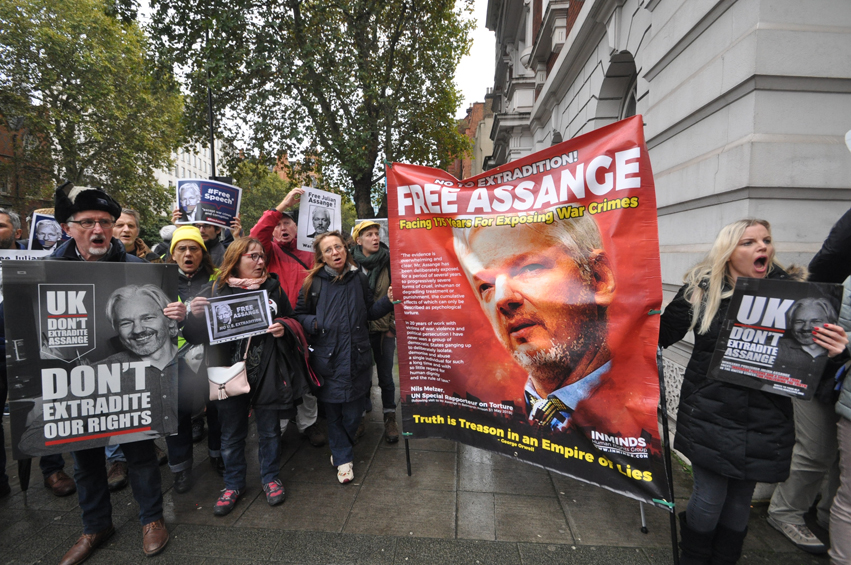
AUSTRALIAN Federal Police (AFP have confirmed that ABC journalist Dan Oakes will not be prosecuted over his reporting on alleged war crimes carried out by Australian special forces in Afghanistan.
The Commonwealth Department of Public Prosecutions (CDPP) said there was a reasonable chance of securing a conviction against Oakes over the leaked classified documents that he used to form the basis of his reporting.
But the CDPP said there was no public interest in pursuing a prosecution.
In a statement, the AFP said it had referred a brief to the CDPP, outlining three potential criminal charges.
An AFP statement said: ‘In determining whether the matter should be prosecuted, the CDPP considered a range of public interest factors, including the role of public interest journalism in Australia’s democracy.
‘The CDPP determined the public interest does not require a prosecution in the particular circumstances of this case.
‘As a result of this determination, the AFP has finalised its investigation into Oakes.’
The Afghan Files reports, by Oakes and fellow journalist Sam Clark, were based on leaked Defence ministry documents.
The reports covered allegations of unlawful killings by Australian soldiers in Afghanistan.
The AFP earlier this year confirmed it wouldn’t pursue charges against Clark, but uncertainty continued to hang over Oakes.
Oakes told the ABC: ‘It’s been three years, so it is a considerable relief.
‘It doesn’t come as a surprise to me that it’s taken this long to resolve this matter, but look, it’s obviously not ideal and it has been a very difficult three years.’
In June last year, AFP officers searched ABC computer systems for files linked to The Afghan Files.
ABC managing director David Anderson said: ‘This whole episode has been both disappointing and disturbing.
‘The Afghan Files is factual and important reporting which exposed allegations about Australian soldiers committing war crimes in Afghanistan.’
The raid on the ABC came just days after the AFP raided the home of then-News Corp journalist Annika Smethurst.
Police announced earlier this year that charges against Smethurst would not go ahead.
In her case, a brief of evidence was not forwarded to prosecutors.
ABC launched a challenge to the validity of the warrant, arguing it was ‘legally unreasonable’ and included search terms which failed to create any meaningful limitation on the scope.
Federal Court Justice Wendy Abraham dismissed the case and ordered the ABC to pay the costs of the other parties.
The raids on the ABC and Smethurst prompted media organisations to unite to raise their concerns about press freedom in Australia.
Meanwhile, Australian author Kathy Lette has added her voice to those calling for the release of WikiLeaks founder Julian Assange.
In an opinion piece in the Sydney Morning Herald on Thursday, she wrote: ‘As revealed in court, Assange has recently received an official diagnosis of autism.
‘It wasn’t news to me. I’ve been convinced Julian’s on the spectrum from the moment we first met when he moved into our spare room in 2010 seeking legal advice from my then husband, Geoffrey Robertson.
‘Our 29-year-old son Julius is autistic. Like all parents living with the condition, I’ve developed an astute radar for the symptoms.
‘Now, a label is nothing more than something on the side of a jam jar, but it does provide a psychological shorthand to help explain quirky, erratic or idiosyncratic behaviour. Autism is a lifelong neurological condition whose chief characteristics are poor communication and socialising skills, often chronic obsessive-compulsive disorder and anxiety, but also, often, a very high IQ.’
Lette stressed that ‘this court case is no laughing matter.’
Assange is accused of receiving and publishing government documents (170 years’ potential prison sentence) and of allegedly assisting US soldier Chelsea Manning to crack an encrypted password to hide her identity as the source of the leak (five years).
The hundreds of thousands of downloaded classified documents revealed much of the heinous barbarity of the post-September 11, US-led wars in Afghanistan and Iraq and the further barbarity of Guantanamo Bay.
‘A diagnosis of autism is not a “get out of jail free” card, but it could help explain why people so often misread Julian’s single-minded absorption as “narcissism” and why he has alienated allies so easily in the past.
‘Two Britons who faced similar charges of hacking into US military and government agencies, Lauri Love and Gary McKinnon, were medically diagnosed with Asperger’s and both successfully used English court proceedings to stymie US extradition applications.
‘Now that Julian has an official prognosis, there is no reason why he shouldn’t be shown similar sympathy, leniency and compassion.
‘Heroic freedom fighter or maverick controversialist – Assange is a polarising character.
‘I don’t agree with everything he’s said nor everything he’s published. But I do defend his right to say and publish it.
‘Extradition to the US for exposing evidence of atrocities in Iraq and Afghanistan should be opposed by the British government and not punished by banishment into the bowels of some American Super Max.
‘To extradite would be to send the message that no journalist or publisher is safe anywhere in the world. Obama’s administration determined that to prosecute Assange for publishing documents would gravely imperil press freedom.
‘The Australian government should be allowed to bring Assange home – after all, modern Australia started life as the world’s biggest open prison.
‘And being of convict stock, we admire people who have the courage of their convictions.’